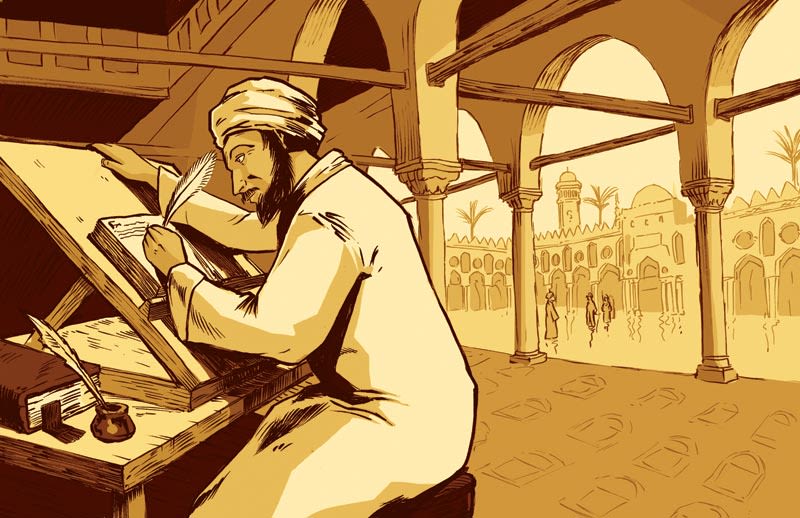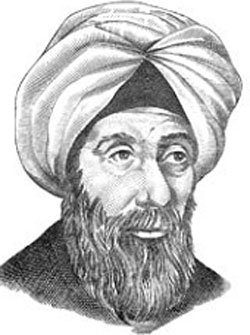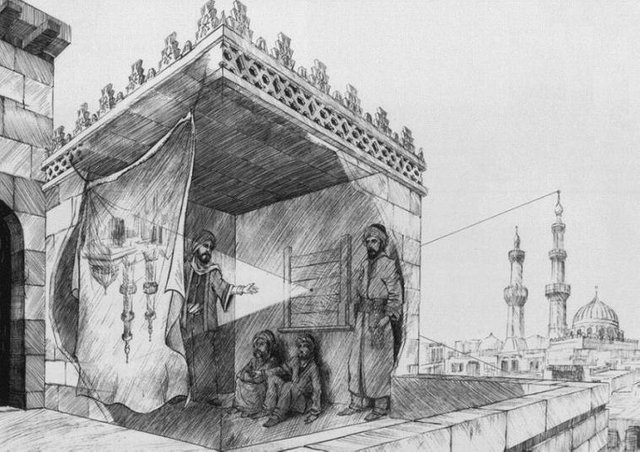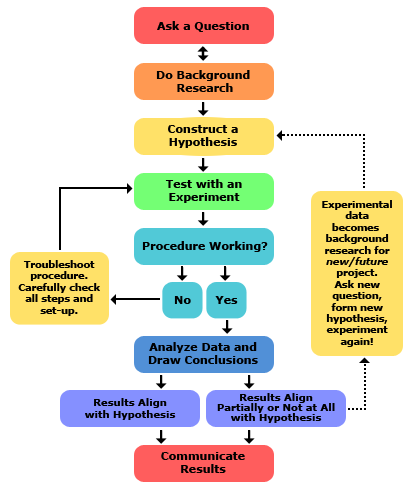History of Science & Technology #3: Ibn al-Haytham, The First Scientist
"The study of the nature and behaviour of every physical body in the universe, science", there's not a lot that's more beautiful than science. So have you ever wondered who was the first ever person that looked at something, wondered why it was there or why it behaved in a specific manner, constructed a hypothesis and then conducted experiments? If you did, you would have come across the name Ibn al-Haytham. He is regarded as the first true scientist.


Ibn al-Haytham
AbūʿAlī al-Ḥasan ibn al-Haytham was born in the year 965 AD in Basra, Iraq. Basra, at the time it was known as a great center of learning, home to a huge library that is reported to have had over 15000 books. Ibn al-Haytham was invited to Egypt by al-Hakim, (also known as "The Mad Caliph") to once and for all regulate the Nile. After working on this project for a while, Ibn al-Haytham couldn't come up with a way to achieve what he was instructed to do. Fearing that disappointing "The Mad Caliph" would cost him his life, Ibn al-Haytham faked going insane and was put under house arrest, and today we are all very grateful that Ibn al-Haytham's acting skills were on point.

The Father of Optics
We have two things in particular to thank Ibn al-Haytham for. Firstly, his book, "The Book of Optics". In this book, Ibn al-Haytham began by slamming a number of existing theories of vision, simply because there was no proof supporting those theories. He then went on to write about his research, firstly by asking the question, "What happens when someone is exposed to bright light?" He then wrote about what he thinks is the affect of light on the eye and then went on conducting experiments where he found the relation between light fraction and image distortion and how it corresponds with the already existing knowledge of the anatomy of the eye, recording all of his findings in his book. His experiments proved that light reaches the eye from the visible object.

The Father of Science
The second thing we need to thank Ibn al-Haytham for is Science as a whole. If you noticed the method that he used when writing The Book of Optics, it's very similar to the scientific method, the method you see on the right. To experiment and test what you have theorized was completely unheard of at the time, but thanks to Ibn al-Haytham and his method and emphasis on proof, to provide proof on your theories and experiment is a requirement for all scientists today. In another book of his, he wrote:
The seeker after truth is not one who studies the writings of the ancients and, following his natural disposition, puts his trust in them, but rather the one who suspects his faith in them and questions what he gathers from them, the one who submits to argument and demonstration and not the sayings of human beings whose nature is fraught with all kinds of imperfection and deficiency. Thus the duty of the man who investigates the writings of scientists, if learning the truth is his goal, is to make himself an enemy of all that he reads, and, applying his mind to the core and margins of of its content, attack it from every side. he should also suspect himself as he performs his critical examination of it, so that he may avoid falling into either prejudice or leniency.
Unfortunately, I cannot write about all of Ibn al-Haytham's work, because he was quite clearly not content with inventing Science and being the father of optics, he went on to develop the link between algebra and geometry, argue that celestial objects are bound to the laws of physics, make early observations about the psychology of optical illusions and invent analytical geometry.
Let me know all your thoughts in the comments section below.
Thanks for reading!
References
https://www.wikizero.com/en/Basra
https://www.britannica.com/biography/Ibn-al-Haytham
http://mvslim.com/islam-and-science-ibn-al-haytham-the-eye-of-physics/
https://io9.gizmodo.com/one-of-the-worlds-first-statements-about-the-scientific-1564545837
Image Sources

| Guidelines | Project Update |
|---|